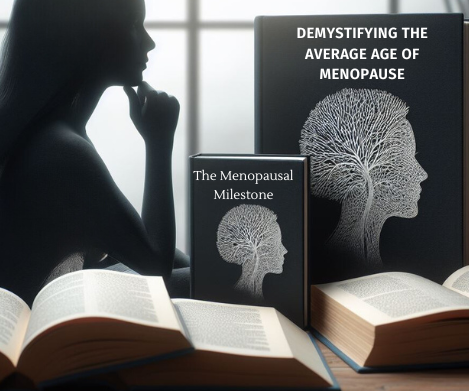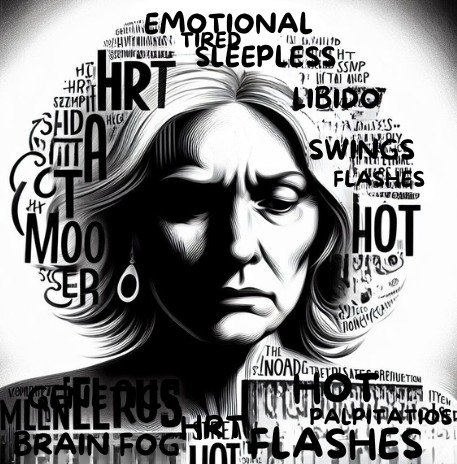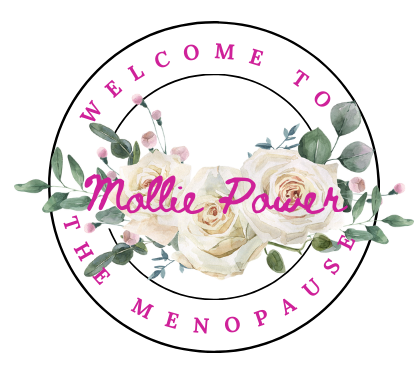
When engaging in discussions about menopause with girlfriends, family members, or colleagues, I occasionally detect a subtle hint of concern in their expressions. A veil of mystery shrouds this inevitable life phase, and it is time to dispel the uncertainty. Menopause isn’t merely a date on a calendar; it signifies a natural progression marking the conclusion of a woman’s menstrual cycles.”
Unlocking the secrets of menopause requires acknowledging it as a distinctive journey rather than a sudden event. Imagine it as a tapestry woven over twelve consecutive months without a menstrual period, signifying the end of one chapter and the beginning of another. Perimenopause, the herald of this shift, introduces a symphony of changes and irregularities to menstrual cycles. As menopause gracefully steps into the spotlight, it seamlessly transforms into post menopause, a phase that gracefully unfolds throughout a woman’s lifetime. This is not just a biological evolution; it is an intriguing expedition, offering profound insights into the natural course of a woman’s reproductive life. No theatrics, just an authentic exploration of a transformative passage.
The commencement of menopause is a complex interplay of several factors. While the natural decline of hormones, particularly oestrogen and progesterone, is a central force triggering menopause, the narrative extends beyond hormonal shifts. Genetic elements, encapsulated in an individual’s chromosomal makeup, contribute significantly to the timing of menopause. The health of the ovaries, serving as the epicentre for hormonal regulation, also bears weight in influencing when this transition unfolds. Additionally, lifestyle choices, involving aspects such as diet, exercise, and stress management, weave into the intricate tapestry of menopausal onset. The union of these complex element’s crafts a unique and personalised experience for each woman as she navigates the profound journey of menopause.
To move forward, it is key to understand the typical timing of this transition. This knowledge equips women to prepare, both emotionally and physically, for the changes ahead.
Navigating the Timeline: When Does Menopause Typically Begin?
Delving into the typical timeline of menopause is like gaining foresight into an imminent chapter of life. Within the broader spectrum, many women navigate this natural stage somewhere between the ages of 45 and 55, with statistical averages pinpointing the onset around 51 years old in. It is crucial to grasp, however, that this is not an exact science but a fluid range, signifying the range of women’s experiences. Everyone’s journey through menopause is distinctly personal, influenced by a coming together of factors like genetics, lifestyle, and overall health. Embracing this subtle understanding allows for a more comprehensive and adaptable preparation for the numerous changes that may unfold during this transformative phase of life.
The onset of menopause before 40 is considered early, also known as premature menopause. While early menopause occurs in approximately 1% of women, it is a reality for some and may require special attention from healthcare professionals. On the other end of the spectrum, menopause can start later. If you are over fifty-five and have not experienced symptoms, it is wise to discuss this with your doctor.
Several factors can influence the age you will begin menopause. Your genetics play a significant role; often, the age your mother or sisters entered menopause can be a good indicator for you. Furthermore, certain lifestyle choices, such as smoking, can lead to an earlier onset, while factors like ethnicity and overall health might also come into play.
There is no one-size-fits-all answer. Understanding that a variety of factors influence the timing helps set realistic expectations and can guide you when you should start looking out for early signs and symptoms.
Symptoms and Signals: Recognizing the Approach of Menopause

Menopause is a significant season in a woman’s life, marked by the ending of menstrual cycles. It does not occur abruptly; instead, it is a gradual process, and several symptoms often precede it. By being aware of these early signals, women can prepare for the coming changes and consult healthcare providers when necessary.
Menopause ushers in a diverse array of physical symptoms that span a spectrum of experiences. From the notable surges of heat and night sweats to disruptions in sleep patterns and declines in bone density, the physical manifestations are manifold. However, the transformative impact is not confined to the physical realm alone. Emotional shifts play an equally pivotal role, marked by mood swings and a decline in libido—both serving as prominent indicators of menopause. These changes extend beyond mere bodily adjustments; they intricately weave into the fabric of a woman’s daily existence, influencing aspects such as energy levels and interpersonal relationships. The comprehensive nature of these transformations underscores the holistic impact of menopause, encompassing both the physical and emotional dimensions of a woman’s well-being.
Of course, experiencing one or two of these symptoms does not automatically mean menopause is starting. But if a pattern emerges or the symptoms are affecting quality of life, it is a clear sign to reach out to a doctor. Discussing these experiences with a healthcare professional can offer insights and ensure other health issues are not at play.
With the right guidance, women can navigate these changes with confidence. The next focus is how to cope with these changes intelligently and compassionately. Let us explore the practical steps and support systems that can make this transition smoother.
Support and Management: Coping with Menopausal Changes
Embarking on the transformative journey that menopause unfolds is not merely about surviving the symptoms; it is a dynamic process of actively steering through change to preserve and enhance one’s overall quality of life. The significance of this journey lies not just intolerance but in embracing positive measures. Lifestyle changes emerge as the linchpin, with regular exercise serving as a cornerstone to foster physical resilience. A well-balanced diet becomes a vital component, supplying the body with essential nutrients to navigate the intricate dance of hormonal fluctuations. Simultaneously, stress-reducing practices emerge as powerful tools, acting as a compass to navigate the emotional complexities that often accompany menopause. This intentional integration of lifestyle adjustments exceeds symptom management; it becomes a transformative strategy that holds the potential to significantly alleviate the discomforts typically associated with menopause, paving the way for a more empowered and balanced approach to this natural life phase.
Medical treatments also play a significant role in managing more severe symptoms. From hormone replacement therapy (HRT) to alternative medicines, it is vital to discuss options with a healthcare provider you trust. They will consider your individual circumstances to recommend the most suitable approach.
But beyond physical remedies, remember the POWER of community. Whether it is a support group or simply opening up to friends and family, sharing experiences can be incredibly validating and comforting. Address emotional well-being with the same earnestness as physical health—it is all interconnected.
Lastly, I encourage you to embrace menopause with optimism. This life stage is not merely an end to fertility but the beginning of a new chapter with its unique freedoms and perspectives. With informed choices and proper support, you might find these years to be among your most vibrant and fulfilling.
Share Your Thoughts Experiences with Us!
We love hearing from our readers! If you’ve just finished reading our latest post, we invite you to share your thoughts, insights, or personal experiences related to the topic. Your perspective adds richness to our community, and we can’t wait to learn from your unique viewpoint.
Feel free to leave a comment below and connect with fellow readers. Let’s build a vibrant community together!
Happy sharing!
